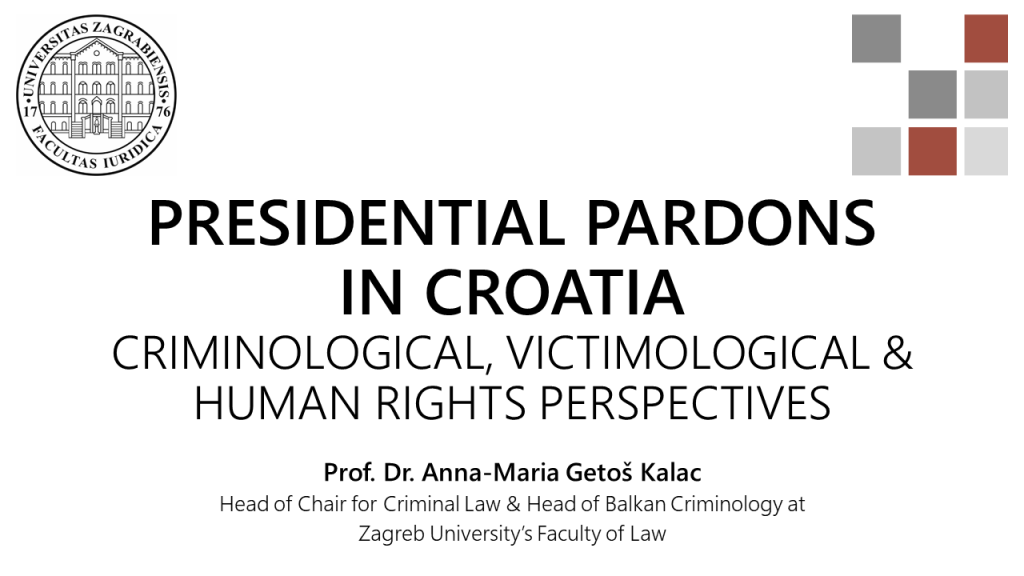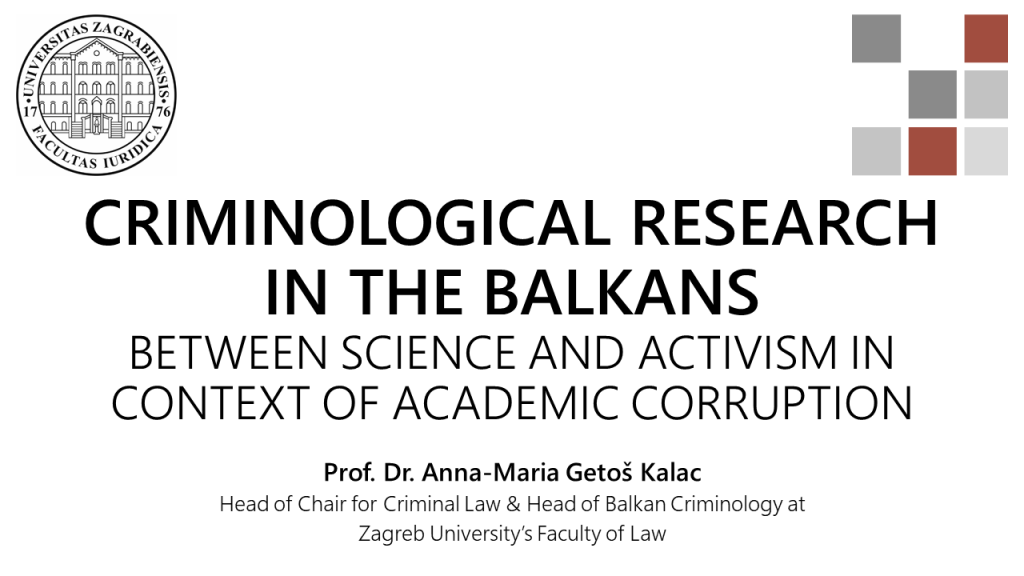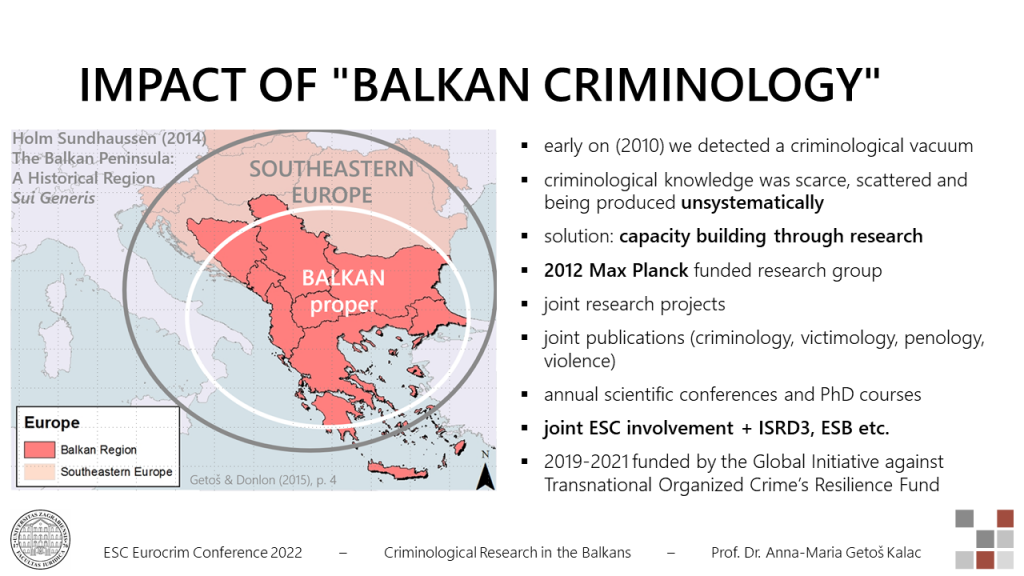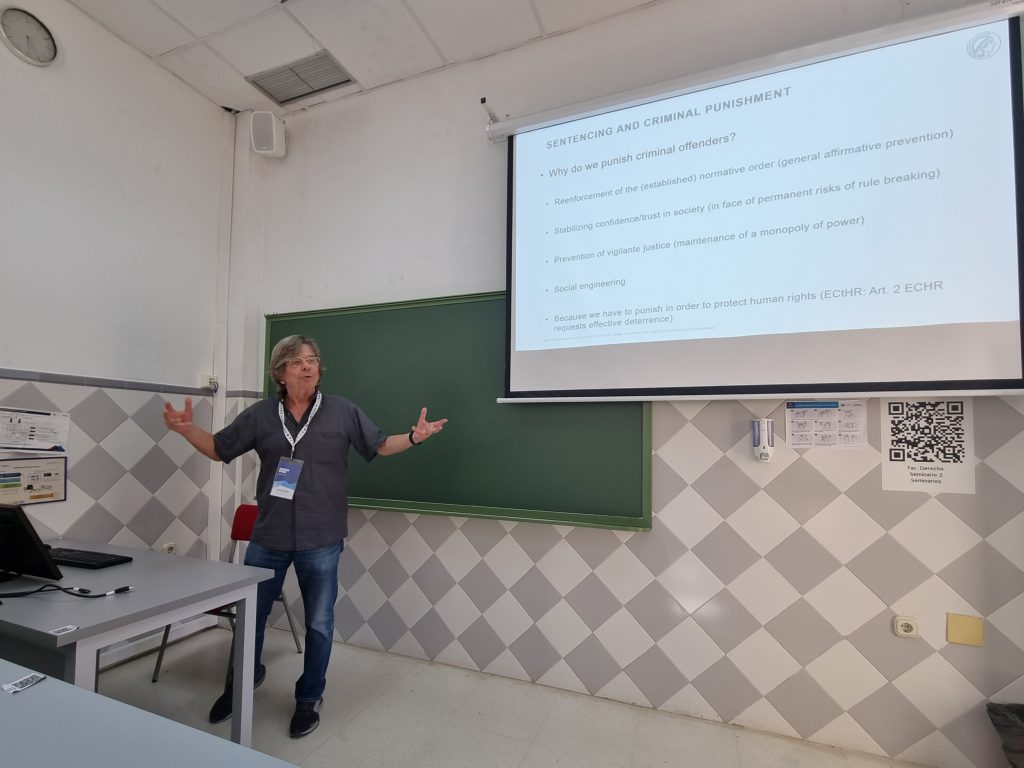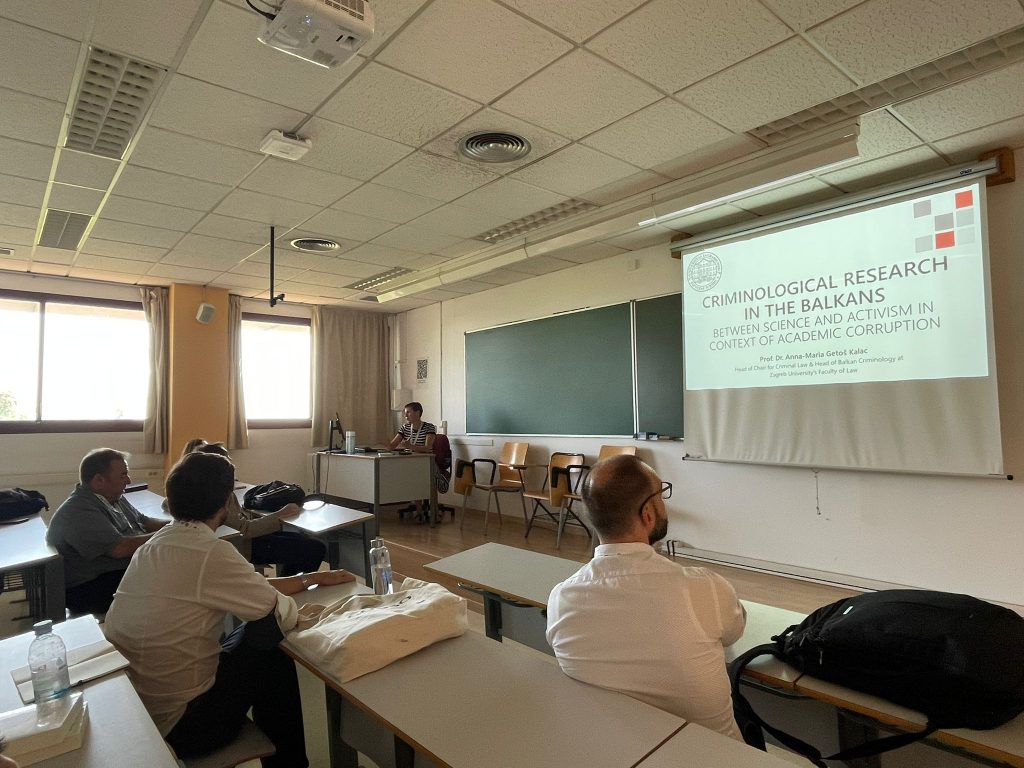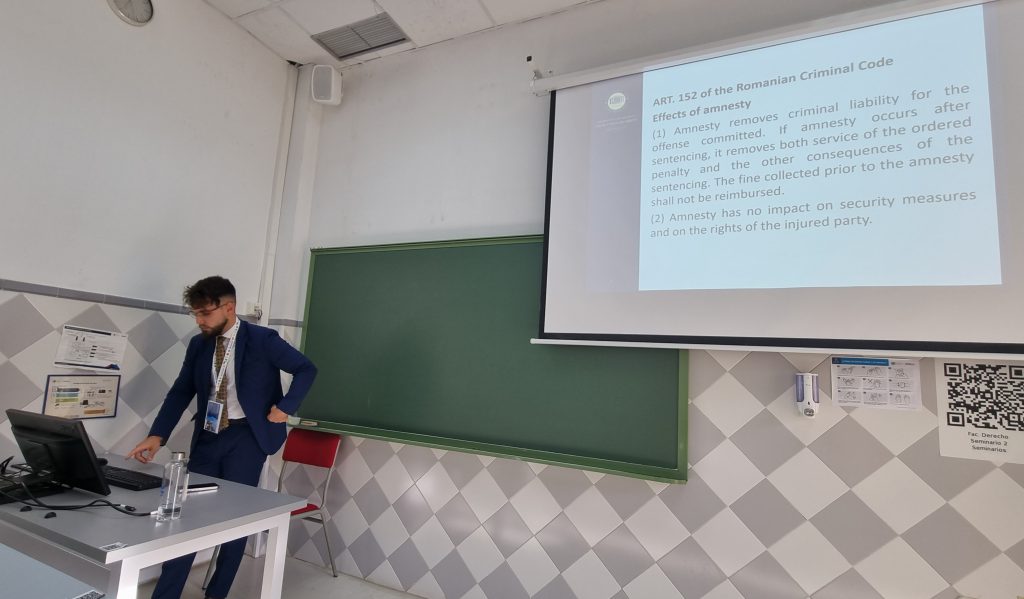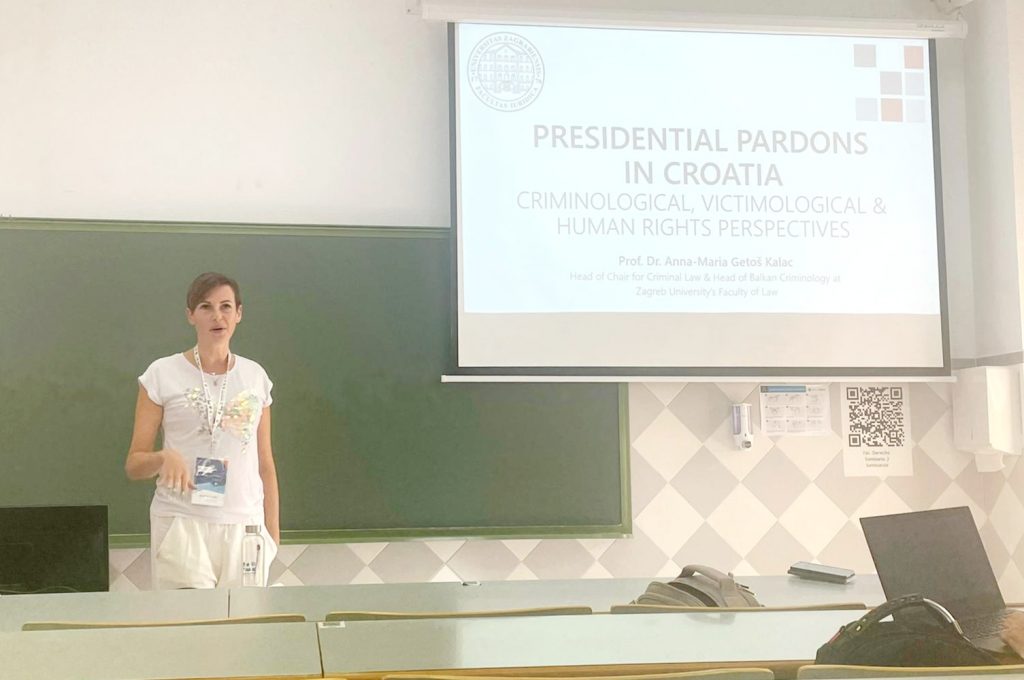Balkan Criminology took part at the 22nd EuroCrim Annual Conference of the European Society of Criminology held in Malaga, Spain, September 21-24, 2022. Prof. Dr. Anna-Maria Getoš Kalac chaired the Balkan Criminology panel on ‘PERCEPTIONS OF (IN)JUSTICE DUE TO SENTENCING AND PARDONING PRACTICES IN THE BALKANS’. The panel discussed conceptual and empirical aspects of potential linkages between the perception of (in)justice due to general sentencing and pardoning practices in the Balkans. The panel also discussed relevant case studies and ECHR case law with a particular focus on pardoning practices and decisions of interest to the Balkans. The core questions addressed by the panel dealt with conceptual, criminological, victimological, penological, but also normative aspects of the purpose of punishment and whether perceived mismatches in sentencing and pardoning practices/decisions might be linked to more general feelings of (in)justice in general, and specifically in the Balkans. The panel included presentations as follows:
- (Perceptions of) Justice in Light of Sentencing and Pardoning (Prof. Dr. Hans-Jörg Albrecht, Max Planck Institute for the Study of Crime and Balkan Criminology)
The presentation provides a general conceptual and criminological as well as criminal law introduction to the topics of (regular) sentencing and (extraordinary) pardoning practices. It sheds light on the current criminological research that looks at linkages between sentencing/pardoning practices on the one sight and the perception of (in)justice on the other side. How are sentencing frameworks determined? What is penal populism? How are abstract sentencing policies implemented in practice and which factors determine them? Are pardons in modern democratic societies that build upon the rule of law nowadays still justified? Does the perception of (in)justice of the criminal justice system in a society even matter and what factors impact public perceptions? These are only some of the core issues the presentation will explore.
After three years of measuring students’ perceptions of the usefulness of sanctions in corruption cases, we intend to compare these results with how the length of the imprisonment applied by of the courts of law has fluctuated over the same period. The study is to compare how the imprisonment has been individualized in the case of corruption offenses as they result from official statistics, how students in law perceive the individualization of sanctions (as result from a survey conduct over the last three years) and if the main economic indicators and the sanitary situation influence them both. The choice of the severity of the sanction affects not only the convicted person, but also the whole society. The way in which the society relays to the sanctions and the way in which they are understood by the court, the links between the economic fluctuations and the gravity of the punishments, and the state of emergency, the sanitary situation shall be examined in order to determine if there is a gap between the expectation of the society and the reasoning of the judges. The conclusion of the study aims to contribute to a better understanding of the role of imprisonment in designing public policies in this field.
The presentation provides for a criminological, victimological and human rights analysis (case study) of the normative and practical aspects of presidential pardons in Croatia. This will be done based on a criminal case (study) that has recently received huge media and public attention in Croatia and in Germany. The analysis thus discusses the case (study) in light of relevant ECHR case law while aiming at conceptually discussing the institute of presidential pardoning in social settings that are perceived to be highly corrupt. What impacts on (media and public) perceptions of (in)justice might such presidential pardoning’s have? How do pardons, and amnesties in more general, fit within a social and normative context of growing concern for victims and victims’ rights? How can one achieve the right balance between (perceived) justice, mercy, forgiveness, victims’ needs, retribution and special as well as general prevention?
The presentation aims to analyze two very important legal concepts, that of amnesty and presidential pardoning, from both a criminological and criminal law perspective. Such topic cannot ignore the historical aspects, such as the amnesty given for all the political criminal offences immediately after the 1989 Revolution in Romania or individual pardoning given by some former Romanian Presidents after this moment. More recently, a law project was meant to prevent the President to pardon criminal offences in the field of corruption, which was however stopped by the Constitutional Court for breaching the non-discrimination principle. The presentation will also address the way in which both amnesty and presidential pardoning are perceived by the Romania population as well as by the legal professionals in this field.
Balkan Criminology also participated in the panel „AN EUROPEAN CRIMINOLOGY?“ which discussed areas identified by specific characteristics of the European approach to crime and justice issues. Panellists talked about theories, applied research, policies and teaching having European criminological specificities. In this way panellists tried to answer the question posed by the title of the panel. Prof. Dr. Getoš Kalac as panellist discussed ‘Criminological Research in the Balkans – Between Science and Activism in Context of Academic Corruption’, focusing on two avenues of thought. The first dealt with the impact “Balkan Criminology” has had in the past two decades on the European criminological research area while portraying its main lines of research thus far as well as current and planned projects. The second discussed the conceptual and practical challenges of criminological research in the Balkans that emerge from the poor setting of public research funding on the one side and quite considerable funds in the civil society sector on the other side. Such a setting creates ambiguities and tensions among researchers and their institutions when having to pick between fundable and sensible, just as it dictates research topics and even methodology. This appears even more challenging in a social setting where corruption and criminal state capture are business as usual and well reflected in the ways of how public research funds are distributed. The presentation concluded with a set of recommendations for further criminological research in the Balkans and how it might strengthen its impact on the academic community as well as the European research area as a whole.
Traditionally, the ESC Working Group Balkan Criminology also held its annual meeting and discussed future research plans as well as ongoing projects.
